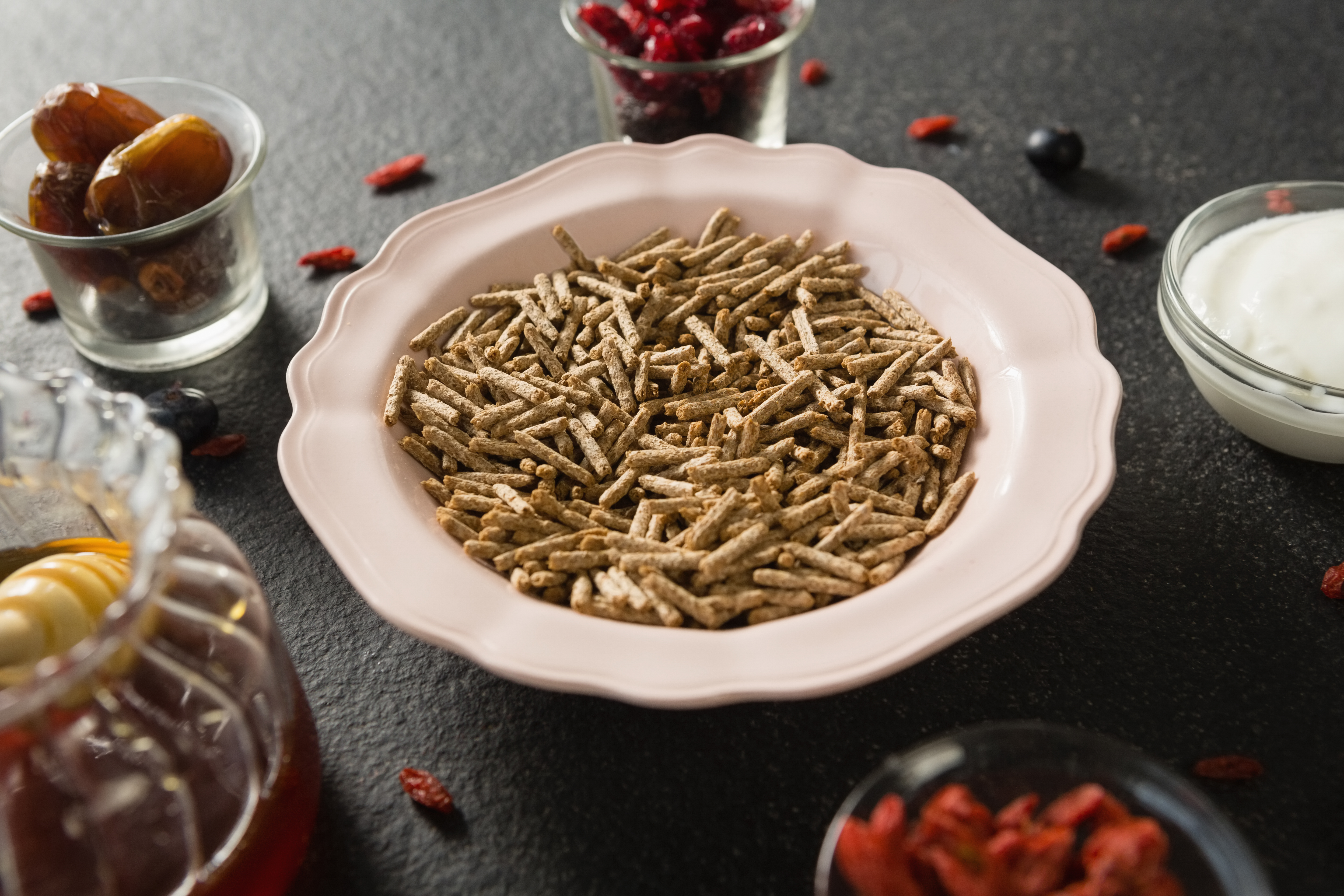10 Simple Lifestyle Changes to Lower Your Cholesterol
Heart health is a paramount concern for millions worldwide, with cholesterol levels playing a critical role in cardiovascular well-being. High cholesterol can lead to serious conditions like heart disease and stroke, making its management essential for a healthy lifestyle. Fortunately, by embracing certain lifestyle changes, one can significantly lower cholesterol and improve heart health. This article explores 10 easy lifestyle tweaks that can help you embrace heart health, offering practical, research-backed strategies to lower cholesterol levels effectively. From dietary adjustments to stress management, each section delves into a distinct aspect of heart health, providing a comprehensive guide to fostering a healthier heart.
1. The Power of Plant-Based Diets

Adopting a plant-based diet is a potent strategy for lowering cholesterol levels. Rich in fruits, vegetables, legumes, and whole grains, these diets are naturally low in saturated fats and high in fiber, which helps reduce LDL cholesterol. Research indicates that plant sterols and stanols, compounds found in plants, can block cholesterol absorption in the intestines, further aiding in cholesterol management. By incorporating more plant-based meals into your diet, you not only reduce cholesterol but also increase the intake of essential nutrients and antioxidants, promoting overall health. The shift doesn't have to be drastic; even small changes, like replacing meat with beans or tofu in a few meals per week, can make a significant difference.
2. The Role of Healthy Fats

Not all fats are created equal, and understanding this distinction is crucial for heart health. Replacing saturated and trans fats with unsaturated fats can help lower cholesterol levels. Foods rich in monounsaturated and polyunsaturated fats, such as avocados, nuts, seeds, and olive oil, are heart-friendly options. Omega-3 fatty acids, found in fatty fish like salmon and mackerel, also play a vital role in lowering triglycerides and improving heart health. Incorporating these healthy fats into your diet can improve cholesterol profiles and provide essential nutrients that support overall health. By making simple swaps, such as using olive oil instead of butter, you can make a positive impact on your cholesterol levels.
3. Fiber: The Unsung Hero

Dietary fiber, particularly soluble fiber, is a powerful ally in the fight against high cholesterol. Soluble fiber binds to cholesterol in the digestive system, helping to remove it from the body and lowering overall cholesterol levels. Foods high in soluble fiber include oats, barley, beans, lentils, and certain fruits like apples and pears. By increasing your intake of these foods, you can significantly reduce LDL cholesterol and improve heart health. Additionally, a high-fiber diet promotes digestive health and can aid in weight management, further supporting cardiovascular wellness. Aim to incorporate a variety of fiber-rich foods into your daily meals to harness their full benefits.
4. Exercise: The Heart's Best Friend

Regular physical activity is one of the most effective ways to lower cholesterol and improve heart health. Exercise helps increase HDL (good) cholesterol while lowering LDL (bad) cholesterol and triglycerides. Engaging in at least 150 minutes of moderate-intensity aerobic exercise, such as brisk walking, cycling, or swimming, each week can have a profound impact on cholesterol levels and overall cardiovascular health. Exercise also aids in weight management, reduces blood pressure, and enhances mood, contributing to a healthier lifestyle. Finding an activity you enjoy can make it easier to incorporate regular exercise into your routine, making it a sustainable habit for heart health.
5. Smoking Cessation: A Breath of Fresh Air

Quitting smoking is one of the most significant steps you can take to improve heart health and lower cholesterol. Smoking damages blood vessels, reduces HDL cholesterol, and increases the risk of heart disease. By quitting smoking, you can improve your cholesterol profile, enhance lung function, and reduce the risk of cardiovascular complications. The benefits of quitting smoking begin almost immediately, with improved circulation and lung function within weeks. Support from healthcare professionals, smoking cessation programs, and lifestyle changes can aid in successfully quitting smoking, paving the way for a healthier heart and a longer, more vibrant life.
6. Limit Alcohol Intake

While moderate alcohol consumption has been associated with certain heart benefits, excessive drinking can lead to increased cholesterol levels and other health issues. Limiting alcohol intake to no more than one drink per day for women and two drinks per day for men can help maintain healthy cholesterol levels and reduce the risk of heart disease. If you choose to drink, opt for red wine, which contains resveratrol, a compound that may offer heart-protective benefits. However, it's important to balance alcohol consumption with a healthy lifestyle, as excessive drinking can negate any potential benefits and harm heart health.
7. Stress Management: Keep Calm and Carry On

Chronic stress can negatively impact cholesterol levels and heart health. When stressed, the body releases hormones like cortisol, which can increase blood cholesterol levels. Implementing stress management techniques, such as mindfulness meditation, yoga, deep breathing exercises, or hobbies, can help reduce stress and improve heart health. Regular physical activity, social connections, and adequate sleep also play a role in stress reduction. By managing stress effectively, you can lower cholesterol levels, improve overall well-being, and enhance your quality of life. Finding healthy ways to cope with stress is essential for maintaining a heart-healthy lifestyle.
8. Maintain a Healthy Weight

Achieving and maintaining a healthy weight is crucial for lowering cholesterol and promoting heart health. Excess weight, particularly around the abdomen, is associated with higher LDL cholesterol and triglycerides, increasing the risk of heart disease. By adopting a balanced diet and regular exercise routine, you can achieve a healthy weight and improve cholesterol levels. Weight loss, even as little as 5-10% of your body weight, can have a significant impact on cholesterol and overall health. Focus on sustainable lifestyle changes rather than quick fixes to achieve long-term success in weight management and heart health.
9. Stay Hydrated

Hydration plays a vital role in maintaining overall health, including heart health. Drinking adequate amounts of water helps maintain proper blood viscosity and supports healthy circulation. Staying hydrated can also aid in weight management, as thirst is sometimes mistaken for hunger, leading to overeating. While water should be the primary source of hydration, herbal teas and water-rich fruits and vegetables can also contribute to fluid intake. Avoid sugary drinks and excessive caffeine, as they can negatively impact heart health. By prioritizing hydration, you support your body's natural processes and contribute to a healthier heart.
10. Regular Health Check-Ups

Routine health check-ups are essential for monitoring cholesterol levels and overall heart health. Regular screenings allow for early detection of high cholesterol and other risk factors for heart disease, enabling timely intervention and management. Work with your healthcare provider to establish a schedule for cholesterol screenings and other heart health assessments. These check-ups provide an opportunity to discuss lifestyle changes, medications, and other strategies to maintain or improve heart health. Being proactive about your health can lead to better outcomes and a reduced risk of cardiovascular complications, empowering you to take charge of your heart health.
A Heartfelt Commitment: Put Yourself First

Embracing heart health through lifestyle changes is a powerful way to lower cholesterol and reduce the risk of heart disease. By adopting a plant-based diet, incorporating healthy fats, increasing fiber intake, exercising regularly, quitting smoking, managing stress, maintaining a healthy weight, staying hydrated, and attending regular health check-ups, you can make a significant impact on your cholesterol levels and overall cardiovascular health. These 10 easy lifestyle tweaks are not only practical but also sustainable, offering a comprehensive approach to heart health that can lead to a longer, healthier life. Commit to these changes today and take the first step toward a heart-healthy future.
